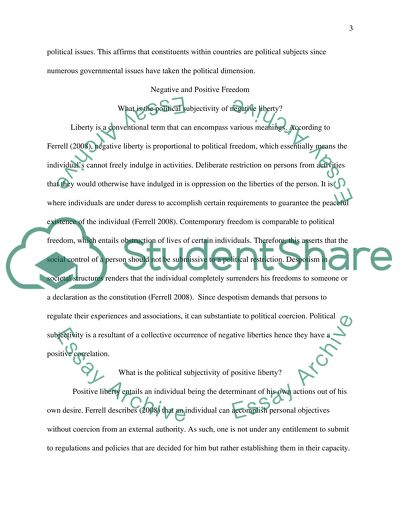Cite this document
(“Reflective Log- Power, freedom, justice: explorations in political Essay”, n.d.)
Retrieved from https://studentshare.org/history/1446610-reflective-log-power-freedom-justice-explorations
Retrieved from https://studentshare.org/history/1446610-reflective-log-power-freedom-justice-explorations
(Reflective Log- Power, Freedom, Justice: Explorations in Political Essay)
https://studentshare.org/history/1446610-reflective-log-power-freedom-justice-explorations.
https://studentshare.org/history/1446610-reflective-log-power-freedom-justice-explorations.
“Reflective Log- Power, Freedom, Justice: Explorations in Political Essay”, n.d. https://studentshare.org/history/1446610-reflective-log-power-freedom-justice-explorations.


